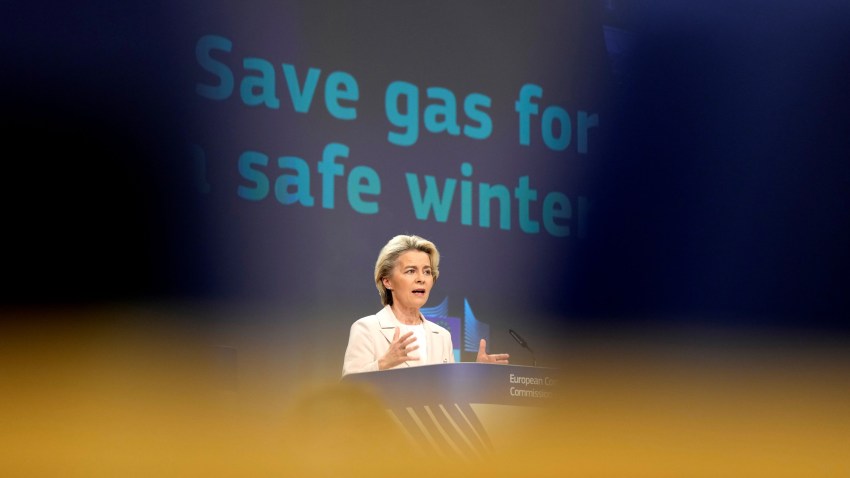On Monday, European Union energy ministers adopted a natural gas price cap after months of heated negotiations, causing concern among senior officials in the Biden administration and the European Commission. Their fear is that the cap will push exports of U.S. liquefied natural gas, or LNG, away from Washington’s allies in Europe and toward other countries that are willing to pay more for them. Such a development would work against the strategic interests of both the EU and the U.S., as Russia continues to blackmail Europe with its energy resources.
In finally agreeing to create a mechanism to place limits on excessively high gas prices, the EU’s 27 energy ministers adopted a plan that will kick in if two conditions are met simultaneously: gas prices on the Dutch TTF, the EU’s main gas trading hub, must exceed 180 euros per megawatt-hour, or MWh, for three consecutive working days; and gas prices must be higher in the EU than across the rest of the world by more than 35 euros per MWh for three consecutive working days. The TTF traded at nearly 109 euros per MWh on Monday, when EU energy ministers approved the natural gas price cap. This “market correction mechanism,” which is set to kick in Feb. 15, 2023, was adopted despite intense opposition from the European Commission as well as Germany and other EU states from the bloc’s north. But they were unable to overcome support for the mechanism among the 16 Southern and Eastern EU countries that favored the cap and successfully pressured the commission to put the issue up for a final vote among EU ministers.
The commission’s senior officials did little to mask their misgivings about the market correction mechanism. “The commission has always been clear this mechanism brings benefits but comes with risks,” said Kadri Simson, the EU’s energy commissioner. The commission can kill the legislation before it takes effect in February if the EU’s two energy regulators, the Agency for the Cooperation of Energy Regulators and the European Securities and Markets Authority, determine that it entails dangerously high levels of risk and the commission concurs. If the mechanism ever is triggered, the price cap will last for only 20 days. Once activated, the price cap would be automatically suspended if LNG on global markets fall below 145 euros per MWh for three consecutive working days. The commission could also suspend it by declaring an emergency, in the event that a dramatically lower price of gas coincides with a significant increase in gas consumption across Europe.

